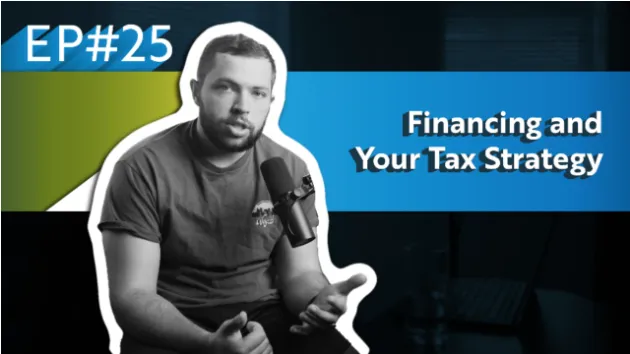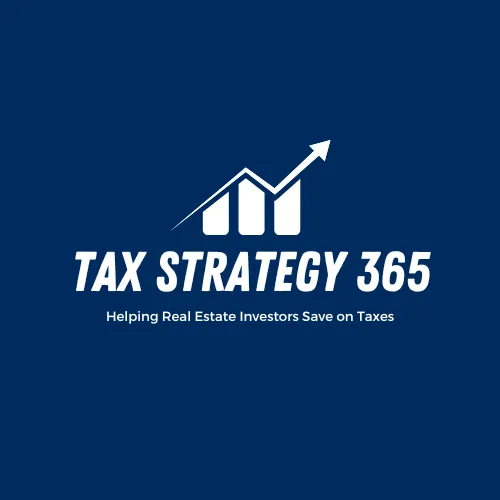Latest blogs and articles
Leading you to a better financial future.

Financing and Your Tax Strategy
Financing and Your Tax Strategy
Does it matter for my tax situation whether I finance a property using a conventional loan, secondary home loan, investment loan, or DSCR Loan?
Does Financing Affect My Tax Liability?
I'll start by being blunt: Financing doesn't affect our tax situation.
The tax man does not care how we acquire the loan or how we acquire the property. We can use any loan type - DSCR, primary, or secondary home loans - and our tax liability is relatively the same.
Similarly, the taxman does not care if we close in our personal name or a single member LLC. We’re still going to get the same tax treatment and the same tax benefit.
Some people decide to close in their personal name and then later transfer to an LLC. And why would we do this? Well, we’re going to get better financing options, better terms, a better rate in our personal name than if we would in an LLC. However, transferring the title or the loan from our personal name to the LLC can trigger what's called the “due on sale clause”. And then the bank can technically call our note or make us come due with the balance.
Now, I've never seen a bank personally do this, but they can. So if liquidity sort of dries up or there's a run on the bank, our note can be called. Again, not legal advice here, but this is what I've seen.
Most people choose again to close in their personal name for the better terms in the rate. Closing in a personal name will also be quicker than closing an LLC. However, if we have a partner in our LLC and we borrow money or buy a property, we will have to file a partnership tax return.
What about DSCR Loans?
DSCR loans stand for Debt Service Coverage Ratio loans. These types of loans are more of an investment-grade style because they're based on the property's ability to service the debt.
They’re also the most common types of loans because there is no income verification that's needed. They will verify the cash that we have in our bank, our credit score, and we'll probably have to sign a personal guarantee. But more so they're looking at that subject property's ability to service debt using a “debt service coverage ratio”. Most banks are going to look for 1.25 or one.
Beware of a “prepayment penalty” when it comes to DSCR loans. This will prevent us from refinancing or selling within a time period, typically within three to five years after we close on the loan.
That DSCR loan is great for self-employed people like myself or irregular income folks that can't prove a track record of income but have the cash in the bank. The downside of DSCR loans is that we are going to have higher rates and lower quality terms in a DSCR product than we would a regular conventional loan. But if we're self-employed and don't have two years worth of tax returns to be able to do a conventional loan, it's a great way to get in the game.
What’s a Bank Statement Loan?
A bank statement loan is very similar to DSCR. All they're verifying is do we have the cash in the bank. If we have our reserves built up right, six to nine months of reserves, they'll check our credit score and sign a personal guarantee. And it's great for people who are self-employed or don't have a stable or good income.
Secondary Home Loans
A secondary home loan is where we show the bank that we have the intent to actually use the property as a secondary home or vacation home. And what's nice about these loans is we can put as little as 10% down on these properties - the best rate or terms out of any loan with this secondary home loan product.
We want to be aware of two different rules when we're using this loan:
Lender's requirement: Some lenders want to see that we're using the home as a secondary home loan. To prove this on our tax return, there will be a personal use day box that we can put in how many days that we use it for personal use. And most lenders want to see that we've actually used it for two weeks.
However, the IRS has a rule where, if we use the property for more than 14 days for personal use, we’re going to be limited to the amount of deductions that we can take. And it says the greater of 14 days personal use or 10% of total rental days. So, if I rent the property out for 200 days, I would get 20 days personal use instead of 14.
High-Level Strategy
Assuming that I have 9 to 12 months of reserves for all my rental properties or my business, I prefer to put as little cash down as possible. The reason why is we are using leverage. And so it doesn't matter if we put 10%, 20%, or 100% down, we still get the same amount of appreciation on that property and the same depreciation or the tax benefit.
In fact, the lower money we put down will actually boost our cash-on-cash return because we're gonna have the same net operating income before debt service regardless of if we put 10% or 20% down.
If I have a mortgage in my personal name, consider refinancing in my personal name before transferring it to an LLC or a business entity, I’ll get better rates and terms and be able to close quicker than having it inside of that entity.
Keep in mind that every person was allowed to have 10 conventional loans in their name. After that, most people look to do DSCR, bank statement loan products, or portfolio loans.
QA: What is too much leverage?
One of the questions that we had regarding this subject was, “What is too much leverage?'' And to me that is going to be person dependent and based on our income.
In conclusion, financing doesn't really matter when it comes to our tax situation at all, but I just wanted to bring the conversation to this topic. By following some simple rules and qualifying, we can follow the best strategy according to our personal financial situation.
Financing and Your Tax Strategy
Join my Facebook group with over 9,000 real estate investors!

Choose Your Journey to Tax Excellence
Journey 1
Building a Tax Advisory & Consulting Practice
Scale, streamline, and systemize your advisory business.
Turn compliance clients into year-round advisory opportunities while mastering operational efficiencies for sustainable growth. This track covers pricing, hiring, marketing, and client engagement essentials to help you build a practice you love.
WHAT YOU’LL LEARN:
Crafting solid engagement letters and pricing models.
Transforming compliance clients into year-round
partners.
Marketing
strategies that drive consistent growth.
Recruiting and training the right team to scale your business.
Bonus:A Power Checklist for the ultimate year-end tax planning session.
Journey 2
Tax and Legal Foundations: Core Strategies for All Levels
Master the fundamentals that drive financial success.
Perfect for business owners and advisors, this track delivers essential insights on asset protection, tax planning, estate strategies, and IRS compliance.
WHAT YOU’LL LEARN:
Unlock estate planning with Revocable Living Trusts.
Maximize retirement savings through Solo 401(k) plans.
Real estate strategies: Short-term, long-term, and self-rentals.
Learn asset protection that actually works.
Navigate IRS resolution with confidence and ease.
Journey 3
Advanced Insights: Unlock Complex Tax Strategies
Top-tier strategies for high-value clients.
Designed for experienced professionals, this track offers in-depth guidance on prime tax strategies, entity structuring, and payroll solutions. Gain the insights needed to handle complex business scenarios with confidence.
WHAT YOU’LL LEARN:
Report multi-entity structures with Forms 1065 & 1120S.
Maximize tax savings using Bonus Depreciation & Section 179.
Seamlessly relocate clients to tax-free states.
Navigate business sales and acquisitions smoothly.
Use 105 Plans to save clients on healthcare costs.

2024 Learn Like A CPA. All rights reserved.